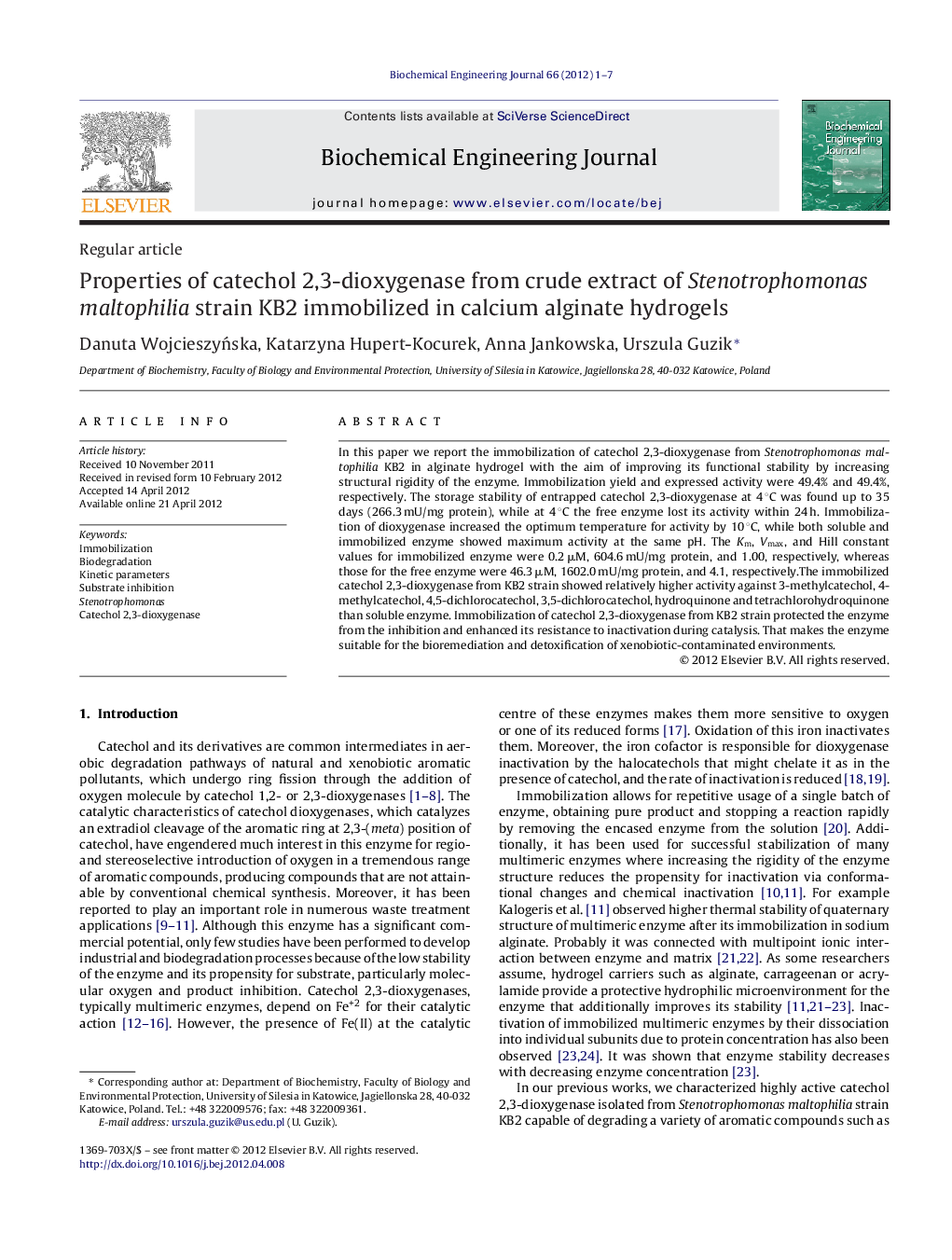| Article ID | Journal | Published Year | Pages | File Type |
|---|---|---|---|---|
| 3624 | Biochemical Engineering Journal | 2012 | 7 Pages |
In this paper we report the immobilization of catechol 2,3-dioxygenase from Stenotrophomonas maltophilia KB2 in alginate hydrogel with the aim of improving its functional stability by increasing structural rigidity of the enzyme. Immobilization yield and expressed activity were 49.4% and 49.4%, respectively. The storage stability of entrapped catechol 2,3-dioxygenase at 4 °C was found up to 35 days (266.3 mU/mg protein), while at 4 °C the free enzyme lost its activity within 24 h. Immobilization of dioxygenase increased the optimum temperature for activity by 10 °C, while both soluble and immobilized enzyme showed maximum activity at the same pH. The Km, Vmax, and Hill constant values for immobilized enzyme were 0.2 μM, 604.6 mU/mg protein, and 1.00, respectively, whereas those for the free enzyme were 46.3 μM, 1602.0 mU/mg protein, and 4.1, respectively.The immobilized catechol 2,3-dioxygenase from KB2 strain showed relatively higher activity against 3-methylcatechol, 4-methylcatechol, 4,5-dichlorocatechol, 3,5-dichlorocatechol, hydroquinone and tetrachlorohydroquinone than soluble enzyme. Immobilization of catechol 2,3-dioxygenase from KB2 strain protected the enzyme from the inhibition and enhanced its resistance to inactivation during catalysis. That makes the enzyme suitable for the bioremediation and detoxification of xenobiotic-contaminated environments.
► Immobilized catechol 2,3-dioxygenase (C23O) exhibits improved storage stability. ► Immobilization of C23O enhances its resistance to inactivation by autooxidation. ► Immobilization of C23O from KB2 strain protects the enzyme from the inhibition.
